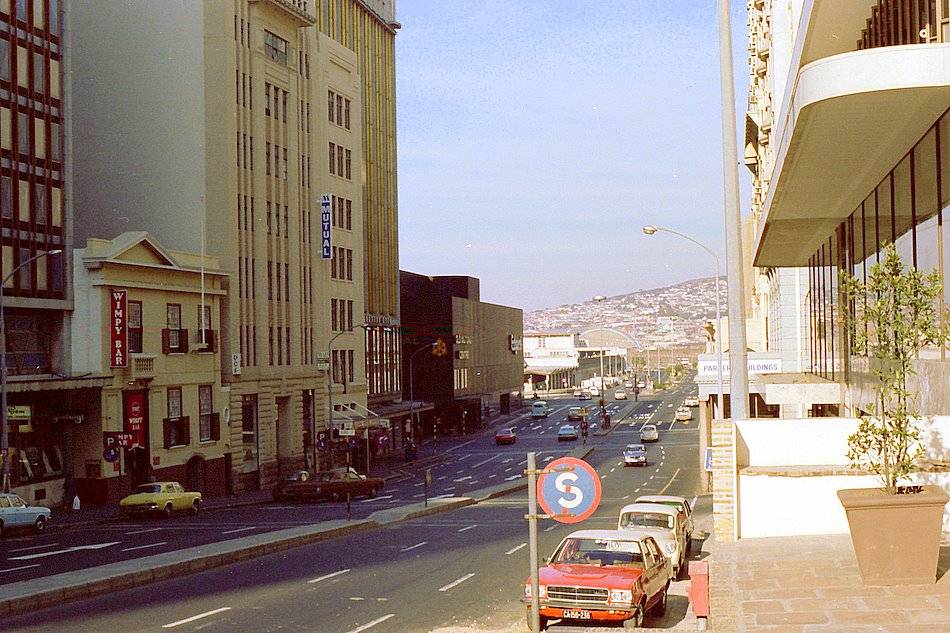What is inflation, and is there anything you can do to protect yourself and your assets from its effects? In the simplest terms, inflation occurs in an economy when money is too plentiful. According to basic supply and demand, if a thing is too common, it has little value.
On a daily basis, we see inflation at work in the prices of food and other goods. Here’s a classic example. We all know WIMPY, South Africa’s first fast food chain. The maiden outlet opened in in 1967 in Strand street in Cape Town. Delve into the archives and you will discover that under the hot beverages section, a cup of coffee would have set you back 12 cents! The higher prices we now pay for common things like food, housing, transport, and entertainment are the result of inflation over time. Today, a regular Wimpy coffee is close to R25!

Image Credit: Etienne du Plessis - Strand str. 1979
When currency becomes too common, it loses value. The global economy’s bizarre problem: too much money due to central bank money printing and robust quantitative easing policies. Demand? Not so much. Investors don’t seem to have much enthusiasm to invest in a global economy that doesn’t look so hot. Strong consumer appetites, continuing supply chain troubles and the ongoing coronavirus threaten to prolong rising prices well into 2022, potentially making inflation the premier economic challenge of the new year.
Inflation is often referred to as “the silent thief.” Over time, unless you structure your resources to counter it, inflation will reduce the value of your savings so that, when you need them, the cash you have ,will purchase less than when you earned it. Rael Demby, CEO of The South African Gold Coin Exchange & The Scoin Shop, believes that diversification can help reduce the impact of market volatility and inflationary risk.
“We live in a volatile world. Gold offers a safe haven asset that always maintains value. Krugerrands, gold coins and collectables distinguish themselves as the ultimate defence against inflation.”
Unlike paper currency and shares, physical precious metals like gold and silver are more resistant to inflation because they derive their value differently than paper currency. Gold and silver are extensively used as a hedge against inflation because they are a limited natural resource, meaning they hold their intrinsic value. Although the price of gold can be volatile in the short term, it has always maintained its value in the longer run. Physical gold coins, modern numismatics and collectables are also a way to pass on and preserve wealth from one generation to the next.
The ongoing volatility of the global financial system and the deteriorating value of fiat currency makes a strong argument for a return to gold. Throughout history, few investments have rivalled gold in popularity as a hedge against almost any kind of trouble, from inflation to economic upheaval or currency fluctuations, to war. Gold has a six thousand year track record as a safe store of value and is the only money that carries no counterparty risk. Gold therefore offers savers a safe haven that protects wealth, especially during times of volatility and economic uncertainty. This is particularly true for physical gold held outside of the banking system – the quintessential off-grid private wealth solution.
